
The illegal trafficking of African grey parrots
Posted on: 20 August, 2025
Among the smartest bird species, their intelligence and ability to mimic human speech have made African grey parrots one of the most popular pet birds in the world, with over 1.3 million having been illegally snatched and exported within the past 40 years.
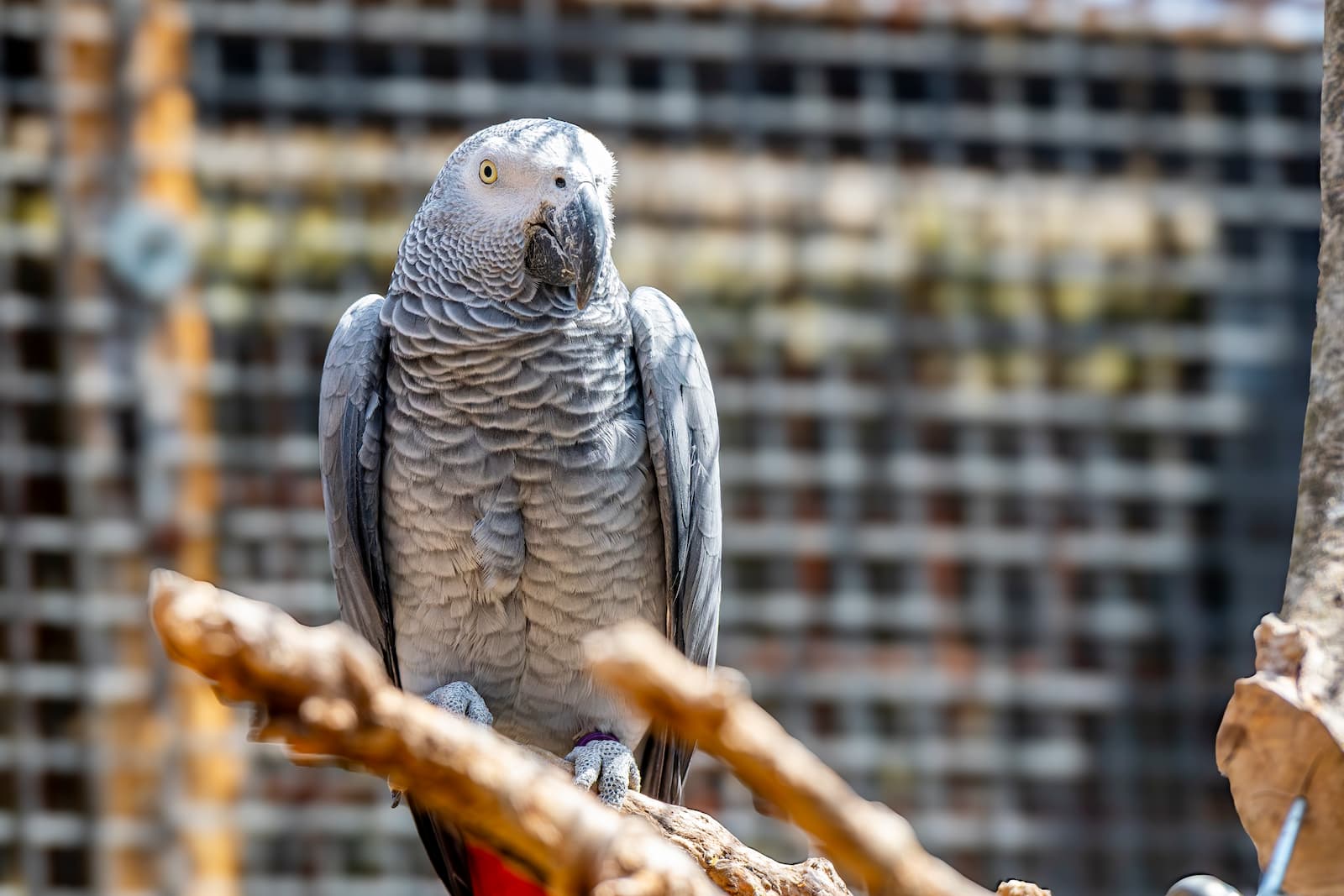
Many of these do not survive the transit or trauma of the capture.
Bristol Zoological Society’s Sheldon Wetton, Curator of Birds at Bristol Zoo Project, explains how animal trafficking is pushing one of the most intelligent birds on our planet to extinction.
African grey parrots are native to the rainforests of western and central Africa. They are medium-sized parrots, predominantly grey with a bright red or maroon tail. They are social animals that thrive on interaction with their flock which can range in size from dozens to hundreds, even up to 1000 individuals or more.
Considered among the most intelligent of all parrots, African greys are estimated to have the intelligence and cognitive skills comparable to that of a five-year-old human. They are well known for being exceptional mimics, capable of learning and reproducing a wide range of sounds, including human speech.
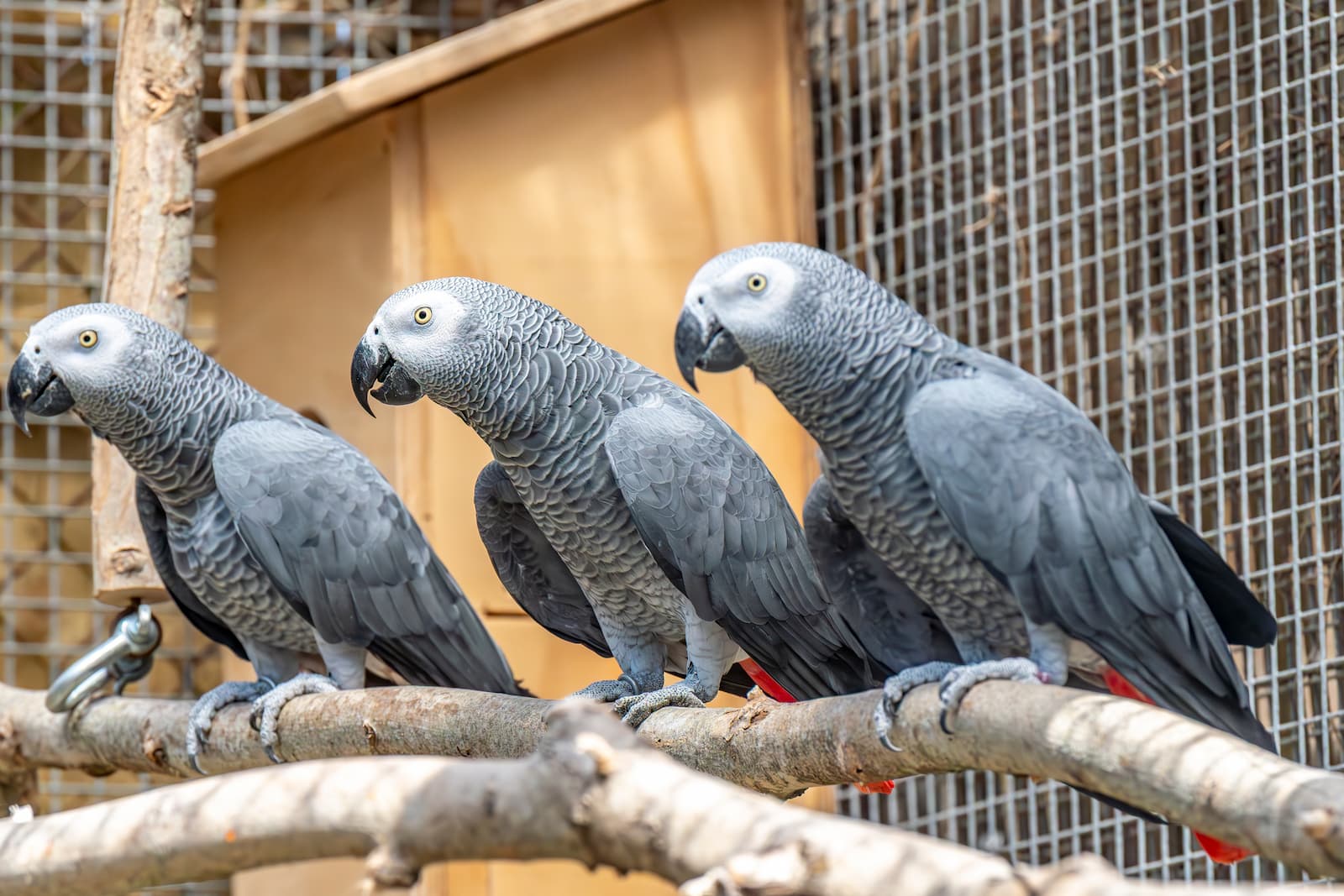
This, along with their curious personalities, has made them one of the world’s most sought- after species in the exotic pet trade. This demand, along with habitat destruction and hunting, has pushed the African grey parrot to the brink of extinction.
African greys have the highest level of protection under CITES (Convention on International Trade in Endangered Species), the international agreement that dictates which animals can be legally traded around the world. Tragically, it’s estimated that up to 66% of captured grey parrots die before even entering the pet trade. (data ref: IFAW)
Poachers use various methods to catch the wild birds, including glue-coated branches to trap the parrots when they land on the sticky surface. Captive African greys are also used as lures to attract wild parrots to the traps. Once captured, the parrots are often crammed into small crates, transported in poor conditions, and smuggled into other countries.
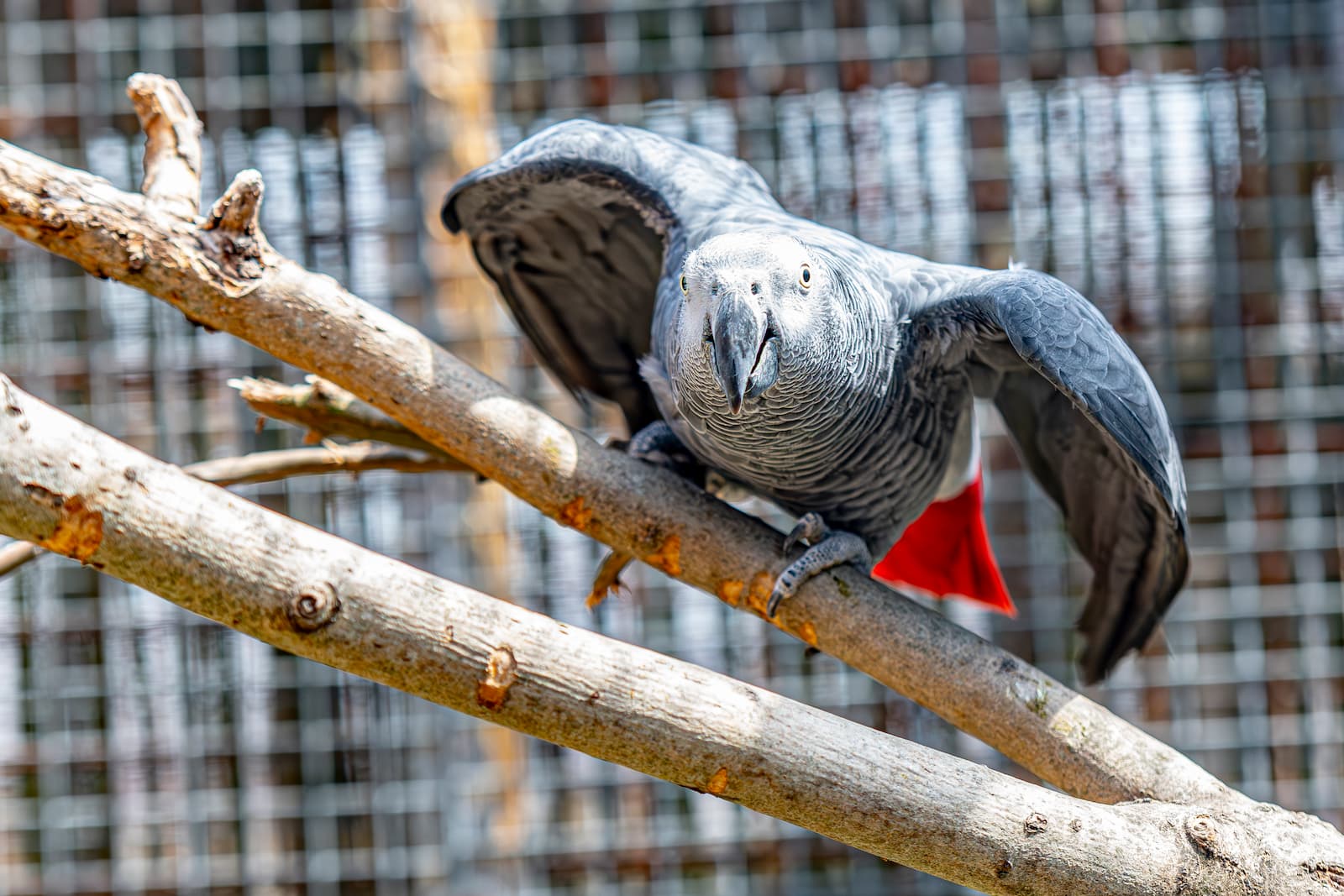
Traffickers employ a range of methods to transport the birds, including mixing African greys with other legally traded birds to evade detection, and even stuffing the parrots into tubes and packing them with domestic luggage. Unsurprisingly, a significant number of parrots do not survive during capture due to injuries, stress, and lack of proper care.
At Bristol Zoo Project, we took in a group of African greys at the end of 2024. The parrots were rescued from the pet trade when discovered by airport customs in Bulgaria.
We are thrilled to report that the parrots are doing very well – one of the females has gone on to lay eggs and following an incubation period of around a month, four chicks have successfully hatched, contributing to international breeding programmes and ensuring their survival. In the future, we hope to work with our partners in Africa to re-introduce populations back to the wild.
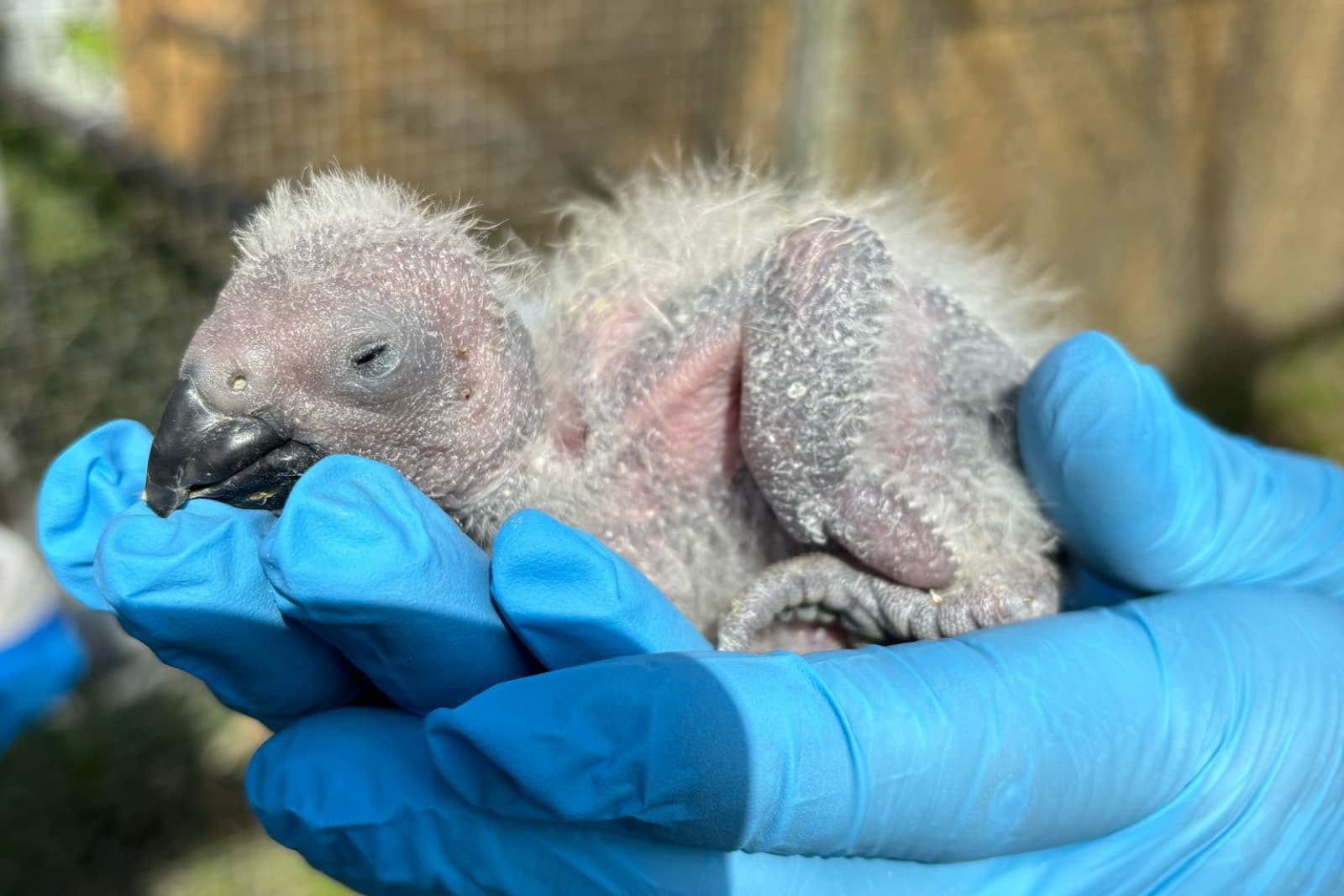
The group has been living off show at the zoo but will soon be moving into our newly created African Forest habitat, where they will live alongside many other highly threatened African species.
Construction work is progressing well, and the new habitat will open to the public in spring 2026.
The African grey parrot aviary is designed to home up to 20 birds, and we hope that the birds will continue to breed in their new home and that the flock will grow. There will be a heated indoor area for the parrots which visitors will be able to see from a large viewing window, as well as an outdoor aviary and plenty of natural structures and elements to keep these highly intelligent animals enriched.
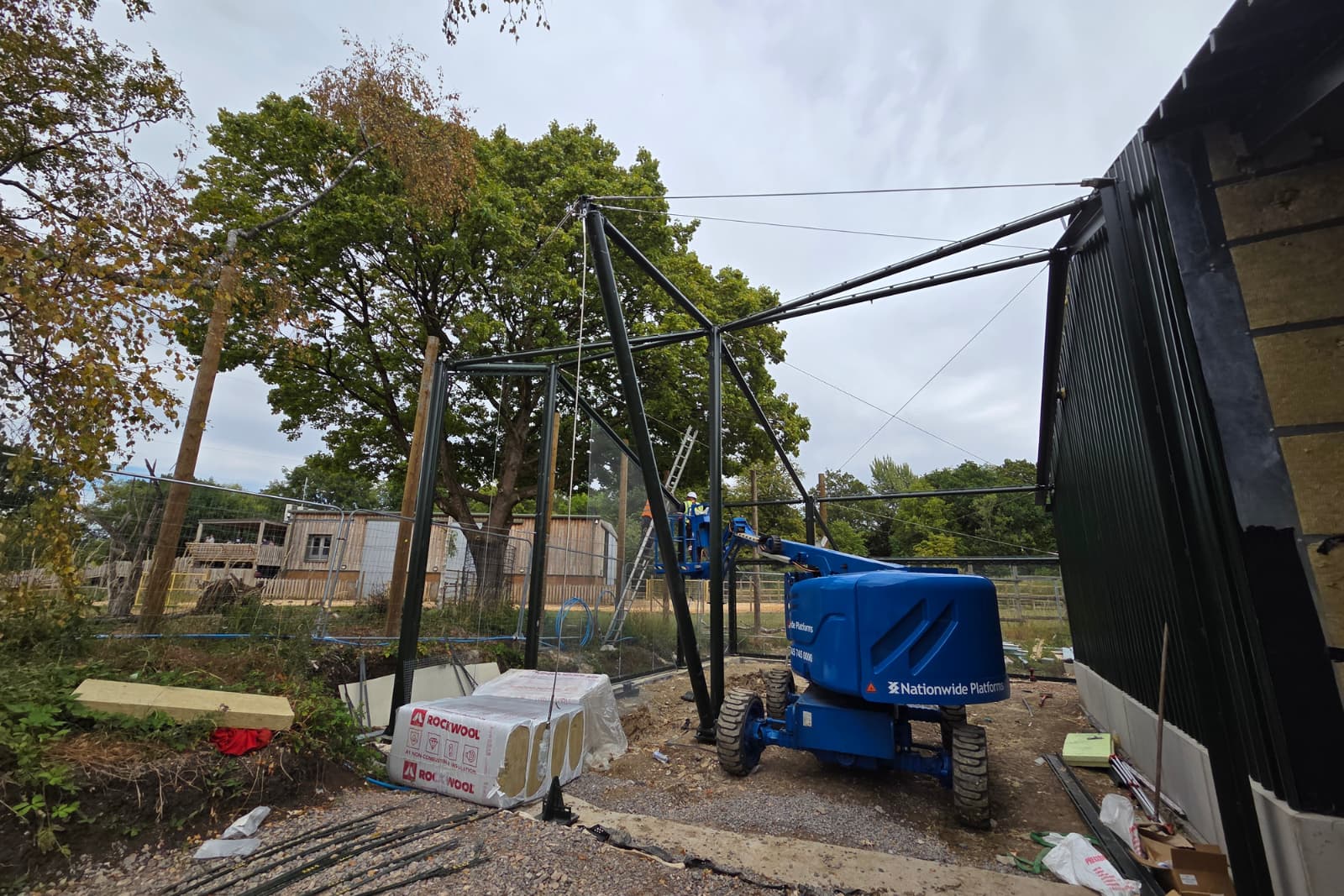
As well as caring for rescued African grey parrots at Bristol Zoo Project, we also work with partners and communities in Monte Alén National Park, where we deliver in-field conservation work as part of our Equatorial Guinea programme. Though widely distributed, it has been confirmed the birds are present in Monte Alén National Park and our teams in the field are working to monitor wildlife populations there, improving patrolling by eco-guards and setting up networks with local communities.
We hope our flock at Bristol Zoo Project, including their future chicks, will act as ambassadors for their species, helping to raise awareness of the threats they are facing.
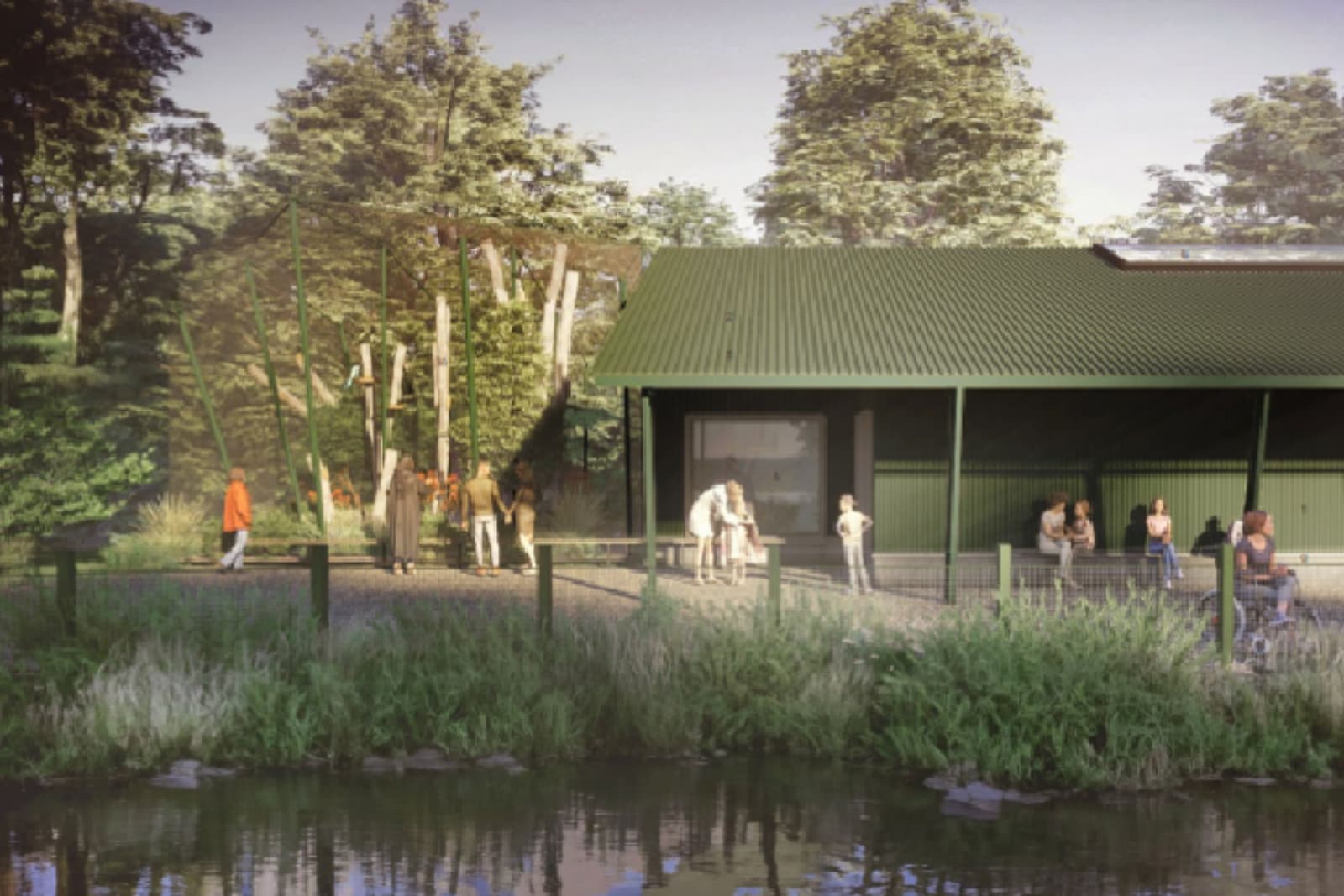
Donations are vital in helping us to look after these incredible birds and to protect them in the wild from traffickers and habitat loss. You can help by donating to our African Forest appeal. Funds to the appeal will help to build the new home for the African grey parrots and to protect these precious species and their habitats in the wild. Plus, every donation is currently being matched funded by the British Airways Better World Community Fund, which means that every donation will make twice the impact!

